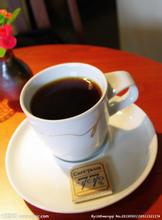Flavor and taste characteristics of Indonesian Java Coffee introduce Java boutique coffee beans in manor producing area
Later, it was brought to Jamaica by the British. By 1925, growing coffee had become a tradition in Central and South America. In the same year, Hawaii also began to grow coffee, which is the only coffee producer in the United States, and Hawaiian coffee is one of the best coffee in the world.
At present, 90% of the coffee beans exported from Indonesia are Robusta beans, and only 10% are Arabica. Before 1920, due to a major environmental disaster, Indonesian coffee varieties were replaced with Robusta beans, so Mandarin coffee in Sumatra is a rare Arabica bean, a treasure before it was discovered in the Blue Mountains. Such genuine production is also rare for the Dutch to first spread coffee to Central and South America in the 1820s. Coffee spread from Dutch colonies to French Guiana and Brazil. during their colonization, the Dutch grew coffee in Malaba, India, and brought it to what is now Batavia in Indonesia-Java in 1699. The Dutch colonies once became the main supplier of coffee in Europe. Currently, Indonesia is the fourth largest coffee exporter in the world. Indonesia (Indonesia) is the first colony (Dutch) to start growing coffee trees. Indonesia's archipelago is the world's largest producer of Robusta beans. This is called high-quality Arabica beans, such as Java and Sumatra.
Java: coffee beans-Robusta
Sumatra (Sumatra): coffee bean seed-Arabica
Growing Environment and main producing areas of Java Coffee
Robusta belongs to lowland cultivation, which is resistant to high temperature, drought, rain, insect pests and strong adaptability. it can grow very well on flat land, and harvesting does not necessarily need manual work, but can be carried out completely by vibration machine.
There are two types of Robusta coffee that you often come into contact with: A.P.Robusta and W.I.B.Robusta.
Except for W.I.B. The granules are larger and the others are smaller. The biggest difference lies in the processing after harvest, so there are some differences in appearance, aroma and taste.

Important Notice :
前街咖啡 FrontStreet Coffee has moved to new addredd:
FrontStreet Coffee Address: 315,Donghua East Road,GuangZhou
Tel:020 38364473
- Prev

Introduction to the characteristics of Costa Rican Coffee
There are many excellent producing areas in Costa Rica, and the high-quality producing areas of Costa Rica have a common understanding of quality, that is, it requires the use of mature coffee fruits to ensure the production of high-quality coffee. Generally speaking, a large amount of water is used in the post-processing of picked coffee fruit, but the advanced production equipment in Costa Rica saves the use of water resources to the greatest extent.
- Next

Introduction to the Flavor and Taste characteristics of Guatemalan Coffee
Guatemalan coffee has a strong aroma, even if you don't drink it, just smelling it is already a pleasure. Antigua coffee has a rich and velvety mellow, rich and lively aroma, and fine sour taste. When the attractive fragrance lingers on the tip of your tongue, there is an indescribable mystery. You may feel dull at the first sip, but as the coffee slows down
Related
- Detailed explanation of Jadeite planting Land in Panamanian Jadeite Manor introduction to the grading system of Jadeite competitive bidding, Red bid, Green bid and Rose Summer
- Story of Coffee planting in Brenka region of Costa Rica Stonehenge Manor anaerobic heavy honey treatment of flavor mouth
- What's on the barrel of Blue Mountain Coffee beans?
- Can American coffee also pull flowers? How to use hot American style to pull out a good-looking pattern?
- Can you make a cold extract with coffee beans? What is the right proportion for cold-extracted coffee formula?
- Indonesian PWN Gold Mandrine Coffee Origin Features Flavor How to Chong? Mandolin coffee is American.
- A brief introduction to the flavor characteristics of Brazilian yellow bourbon coffee beans
- What is the effect of different water quality on the flavor of cold-extracted coffee? What kind of water is best for brewing coffee?
- Why do you think of Rose Summer whenever you mention Panamanian coffee?
- Introduction to the characteristics of authentic blue mountain coffee bean producing areas? What is the CIB Coffee Authority in Jamaica?

